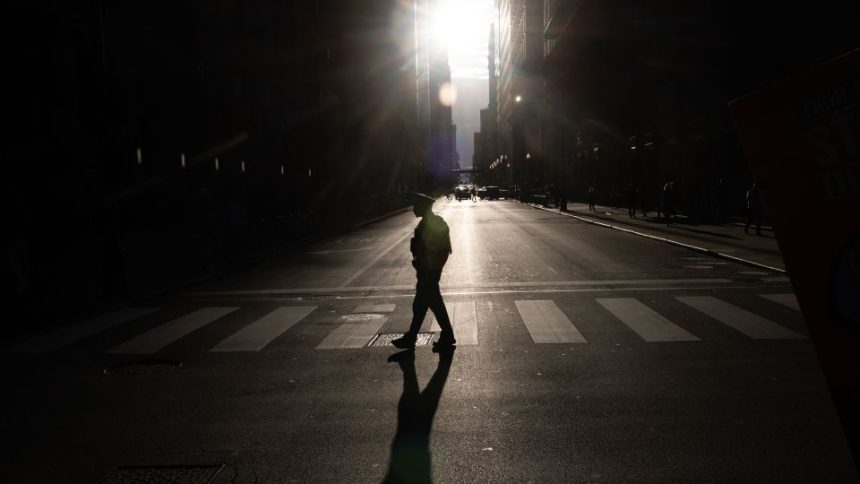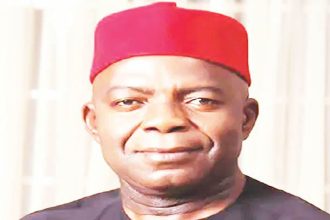Whispers that federal immigration enforcement was imminent ricocheted across Chicago over the weekend as organizers postponed public events and advocates handed out flyers reminding people about their rights in the face of an immigration agent.
By Sunday, White House border czar Tom Homan confirmed those plans for federal immigration agents to head to Chicago and other sanctuary cities this week, calling them “problem areas,” following signals from the Trump administration that raids would surge and after a weekend of fears gripped several states.
“You can expect action in most sanctuary cities across the country,” Homan told CNN’s Jake Tapper on “State of the Union.”
The announcement followed a massive immigration raid at a sprawling Hyundai manufacturing plant in southeast Georgia on Thursday, when hundreds were detained, many of them South Korean nationals. While it didn’t take place in a sanctuary city, the raid was the largest sweep yet by the Trump administration and was a preview, Homan told CNN, of the more extensive enforcement actions to come.
This image from video provided by US Immigration and Customs Enforcement shows a person being handcuffed at the Hyundai Motor Group’s electric vehicle plant in Ellabell, Georgia, on Thursday. – Corey Bullard/AP
Chicago officials have been monitoring days of warnings that federal raids are near, and though the city braced for them over the weekend, the escalation landed farther east. The Department of Homeland Security announced a new federal immigration enforcement effort in Massachusetts focused on deporting criminals who entered the country illegally.
“ICE launched ‘Patriot 2.0’ to target the worst of the worst criminal illegal aliens living in the state of Massachusetts, following the success of Operation Patriot in May,” a DHS spokesperson told CNN on Sunday.
The statement blamed Boston’s Democratic Mayor Michelle Wu for so-called sanctuary city polices that it said “not only attract and harbor criminals but also place these public safety threats above the interests of law-abiding American citizens,” vowing that DHS will arrest criminals released by local authorities.
The Boston and planned Chicago operations are being modeled after the immigration arrests in Los Angeles in June that yielded a number of legal battles for the administration.
Cities push back against Trump threats
In tandem with the threats of a new wave of immigration raids, some cities are bracing for the potential for the president to deploy National Guard troops in his effort to crack down on crime. On Sunday, President Donald Trump said his administration would decide where to send the troops “over the next day or two.”
In Washington, DC, where more than 2,200 National Guard troops armed with weapons have roamed for weeks, officials are suing the Trump administration, accusing the president of violating the Constitution and federal law by sending troops into the city without consent from local leaders.
The lawsuit, filed Thursday by DC Attorney General Brian Schwalb, claims the troops – many from out of state – have been deputized by the US Marshals office and are patrolling neighborhoods, conducting searches and making arrests, despite federal laws that generally bar the military from acting as local police.
The Trump administration has touted its efforts in the capital city, pointing to a sharp drop in violent crime since ramping up federal law enforcement last month. But critics argue the National Guard deployment is unnecessary and costly, with taxpayers footing an estimated $1 million a day, while troops are seen taking photos with tourists, picking up trash and laying mulch.

Members of the National Guard patrol inside the Lincoln Memorial on the National Mall in Washington, DC, on August 28. – Win McNamee/Getty Images
Trump has also repeatedly slammed nearby Baltimore for its crime, calling the city a “hell hole” and suggesting the National Guard could be deployed there next.
“We don’t need an occupation,” Baltimore Mayor Brandon Scott told CNN’s Manu Raju on Sunday. Scott said he’d explore all options when asked whether he would sign an order like Chicago’s that tells local police not to cooperate with federal law enforcement should they be deployed.
On Sunday evening, Trump told reporters Chicago is a “very dangerous place,” adding to the anticipation of troops there. He said he could “solve Chicago very quickly,” but stopped short of committing to deploying the Guard.
The Windy City has been preparing for more than a week for looming National Guard deployments and Immigration and Customs Enforcement raids, from the governor bracing for a court fight to parade planners postponing.
Fears gripped Chicago over the weekend
In the Lower West Side of Chicago, the start of Mexican Independence Day celebrations typically marks a raucous weekend of parties and parades drawing hundreds of thousands of attendees.
While some crowds did gather Saturday waving green, white and red flags down the streets of the predominantly Latino Pilsen neighborhood, an undercurrent of caution persisted.
As costumed performers and children with baskets of treats paraded through the community, bright orange whistles swung from their necks, each one ready to cut through the music should federal immigration agents appear.

Keilina Zamora prepares to participate in the Mexican Independence Day parade in Chicago’s Pilsen neighborhood on Saturday. – Scott Olson/Getty Images

People watch the Mexican Independence Day parade in Chicago’s Pilsen neighborhood on Saturday. – Scott Olson/Getty Images
Elsewhere, celebrations were muted.
In Wauconda, a village in northwest Chicago, the annual Latino Heritage Festival was canceled due to “the recent weather situation and immigration concerns in our area,” the Wauconda Police Department said in a Friday social media post.
One of the largest events of the Fiestas Patrias, the parade for the Mexican Independence Day in Waukegan, has been postponed for the first time in its 30-year history to November 1 from September 14. The festival is celebrated every year in the suburb along Lake Michigan just north of the Great Lakes naval base, the facility Gov. JB Pritzker said Trump is set to use as a command center for incoming immigration agents.
Communities throughout the city are preparing for ICE presence by handing out flyers reminding families they have the right to remain silent, don’t have to consent to be searched and don’t have to share their birthplace or citizenship status, among other rights.
In Pilsen, the neighborhood gathered this weekend to celebrate Latino culture, choosing joy despite fear.
“I think now more than ever is when we need to demonstrate that we are united and we are a community,” said longtime resident Araceli Lucio.
CNN’s Alison Main, Samantha Waldenberg and Gabe Cohen contributed to this report.
For more CNN news and newsletters create an account at CNN.com









